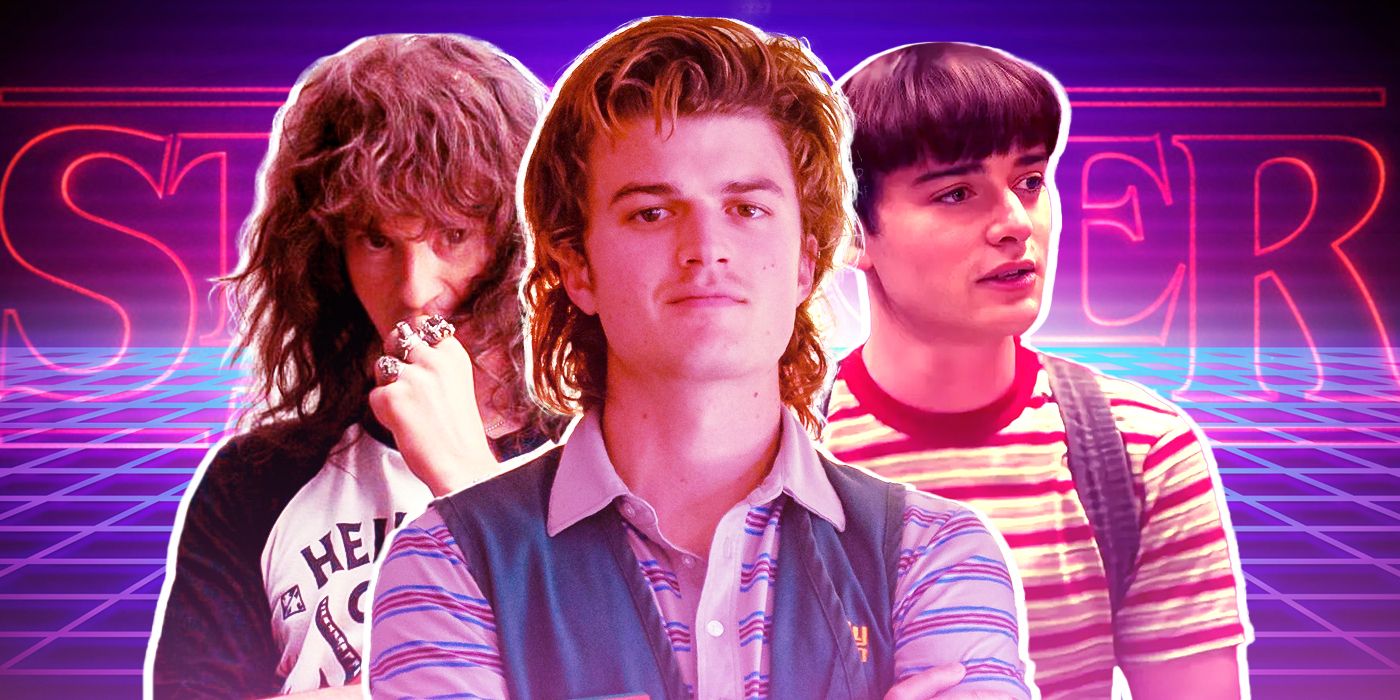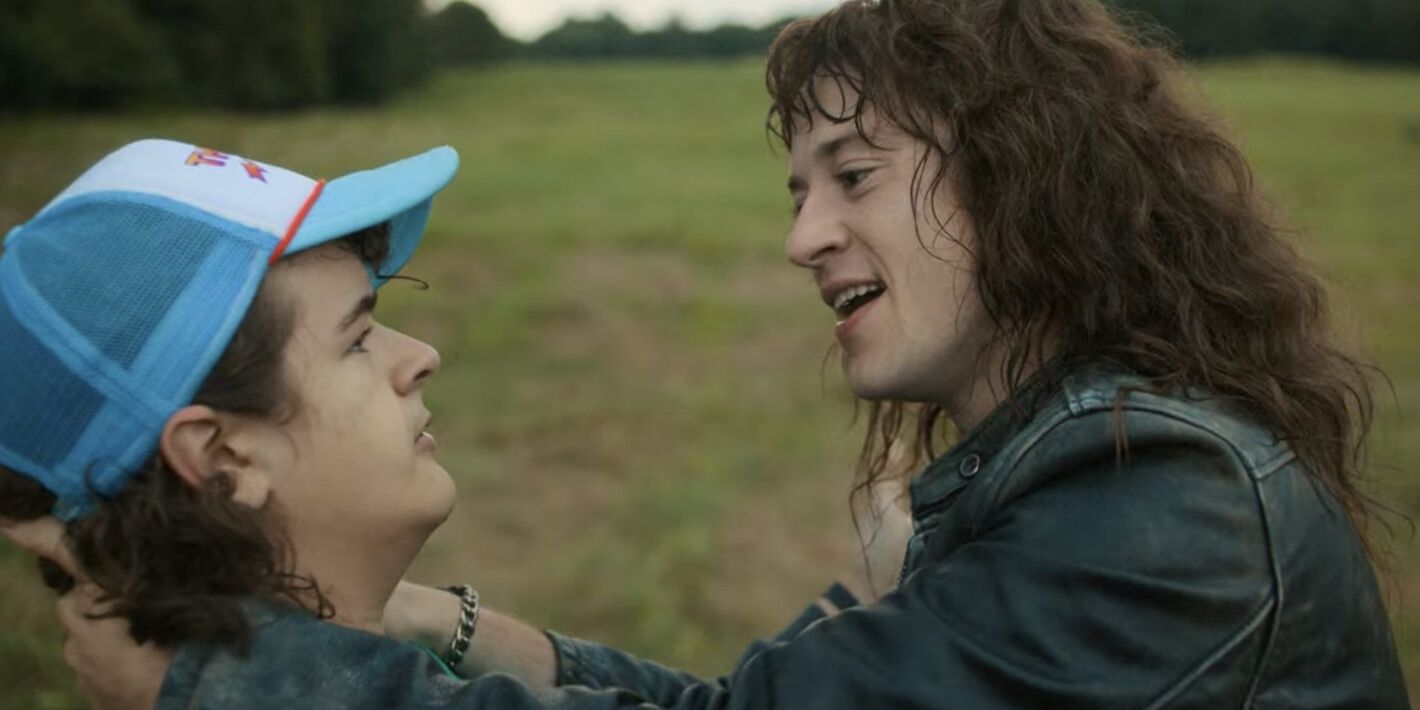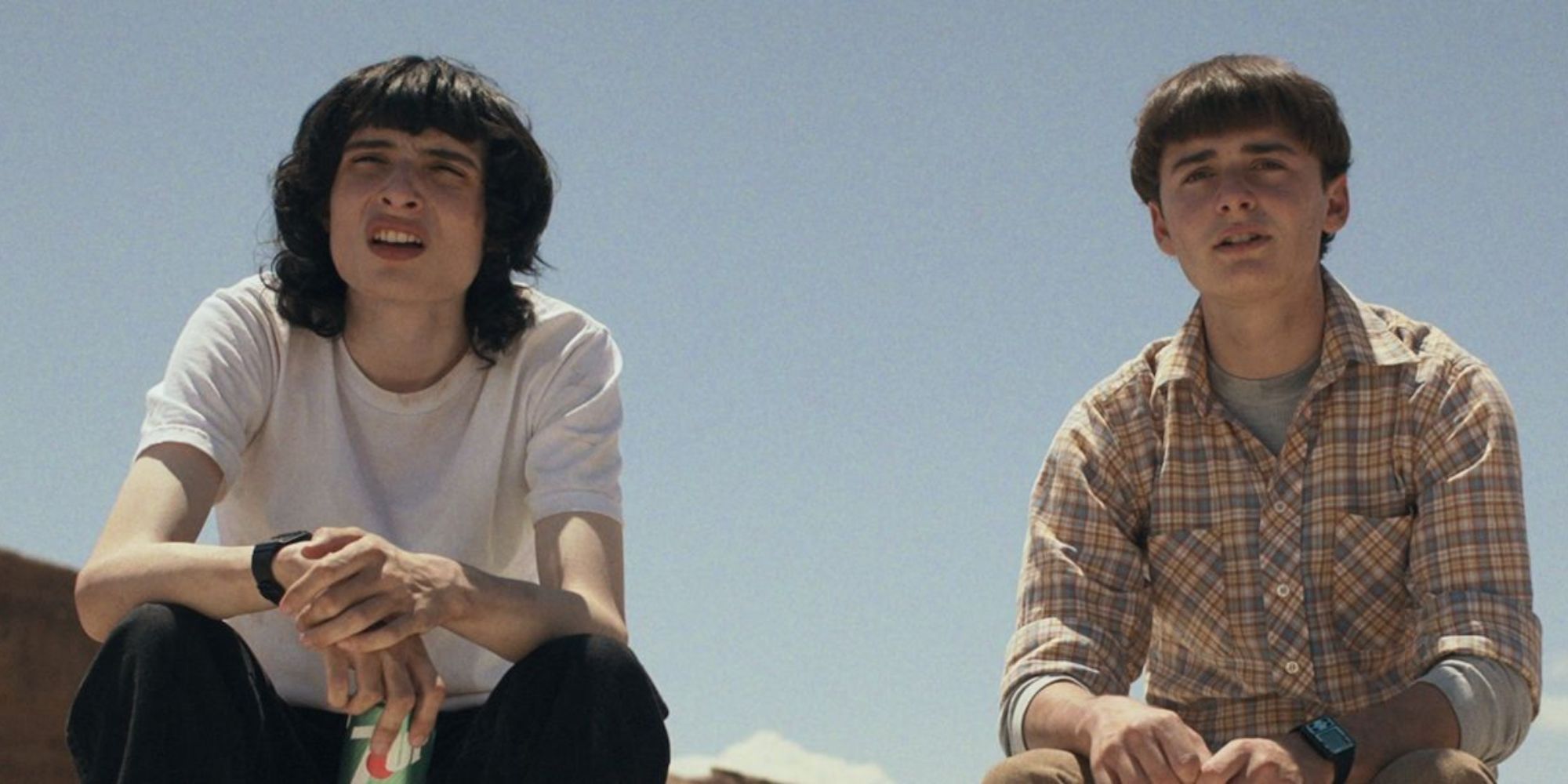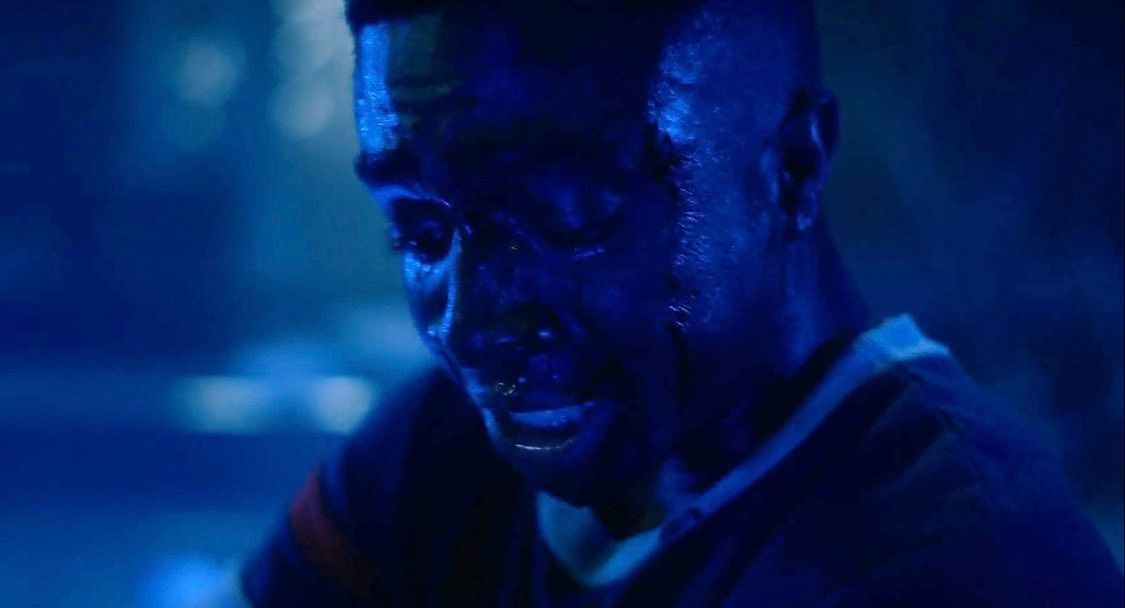With its sizable array of male characters, Stranger Things has, for the greater part of a decade, been able to provide an ample variety of refreshing and surprising alternatives to traditional masculinity. It wasn’t until the latest season, however, that the series took a more assertive turn in this direction. Through representations of healthy communication, emotional vulnerability and the unpacking of “popular guy” stereotypes, Season 4 has proven that retro nostalgia can also help pave the future.
Stranger Things is one of the most present and well-established pop culture phenomena of the last 10 years. The impact it has had on the current cultural zeitgeist is undeniable, with the power to bring back '80s hits, influence fashion and popularize D&D among “non-geek” fans. Such a powerful influencing tool has to be wielded carefully, with writers having the responsibility to pass the right message at all times. It is, after all and to a certain extent, capable of shaping young minds and shifting socio-cultural dynamics, even if inadvertently. The Duffer Brothers have, thus far and for the most part, employed their influence for the greater good, particularly with their careful representation of masculinity.
A process that started in Season 1 but has, to this point, asserted itself in Season 4, saw the changes in the main cast from children to adolescents as an opportunity for growth within the narrative itself. Stranger Things never shied from being dark, but the latest season leaned into heavier themes, namely regarding trauma, survivor guilt and isolation. It is only appropriate then that the main tools for survival this season were also psychological in nature.
In the last eight episodes, audiences saw not one but several moments of deeply moving, sincere moments of vulnerability between young men. Will and Mike, particularly, have more than one moment together where they voice their fears and insecurities toward life, romantic relationships and their own friendship. Will, more so than Mike, is even seen crying several times and not once do any of his peers belittle him for it.
One other sweet moment sees Jonathan offering much-needed emotional support to Will, who welcomes and accepts his brother’s affection, culminating in both sharing a warm and teary embrace. Another sees Dustin and Eddie playing rough for a few seconds, before Eddie tells Dustin to “never change,” and then shifts their playful demeanor into a tender hug. The same Eddie, a long-haired metalhead, stops Steve in his tracks and shares his own resolved insecurities and prejudices towards him, before praising Nancy and Robin’s courage.
Something that is also worth noting, is that Eddie mentions his own lack of courage several times, and no other character ever holds that against him. Even though he later proves himself wrong, the verbalization of his fears throughout the season is never punished or even discouraged. The same applies to Dustin — the same Dustin who can also, at least twice, be seen crying freely and unashamedly.
Tearful confessions, thoughtful advice, emotional openness — these are seen as healthy and welcome forms of engagement between these boys, something that is often non-existent or played for laughs in other pieces of media.
Steve, who was first introduced in Season 1 as somewhat antagonistic, has grown steadily throughout the series and established himself as a fan favorite, especially after his breakthrough in the role of “babysitter” in Season 2. A task that could be seen as “emasculating,” given its traditionally feminine connotations, is what saw Steve emerge and consolidate himself as a strong, likable character. Although Steve continues to half-heartedly reject that role throughout the entire series, it is undeniable that he is drawn to the fatherly mantle — one that is reliable, positive, benevolent. Steve, who admits to dreaming of having no less than six children (the same number of children he keeps complaining about “babysitting”), grows into himself through reliability, caring and the traditional masculine trait of protecting.
This comes as a welcome change of pace, as the “popular boy at school” trope insists on portraying handsome, extroverted and charismatic young men as inherently bad. In fact, Season 4 includes that exact kind of character, with Jason and his crew of “jocks,” who are controlling, heedless and who can only express their fears through aggression. Jason and his friends do not talk, share or listen — not about the things that matter, anyway. Jason communicates orders, plans, rationalizations of his prejudice, threats… But never feelings, not any that aren’t anger, at least.
Another such case is Billy, who represents an abusive, toxic model of masculinity. His negative presence in Max’s life has set up the events and motifs of this season. Max’s trauma, not only from witnessing Billy’s death, but also as a result of his abuse throughout her childhood, is what leads Vecna to mark her as a victim. It is quite fitting that in direct opposition to an entity that feeds on the isolation and vulnerability of survivors, it is the quiet, often invisible heroism of emotional support that prevails. Lucas and Max’s other friends are the answer to Billy and Vecna. In another tear-jerker moment, Lucas offers his friendship and help to Max — a refreshing reversal of roles, given that women often bear the burden of emotional labor.
Stranger Things is not interested in demolishing or rejecting older forms of positive masculinity. On the contrary, it knows what to keep, what to transform, what to introduce to these '80s-inspired male characters. This also applies to Hopper, who is closer to being the typical action hero, but who has undergone certain modernizations. Most notably, not only is Hopper saved by Joyce, a woman in whom he is romantically interested, but he does not think twice about resorting to her help in storming the Russian prison a second time. Overall, there continues to be a vast selection of male personalities to choose from in Stranger Things, although some are more familiar than others.
The importance of having such alternative representations of masculinity is enormous. Boys and men have been taught, in the media and pop culture as well, that crying, talking about one’s feelings and listening are things to be ashamed of. Concomitantly, it has increasingly become more common for young men to be represented at large through a mostly negative lens, as is the case with Euphoria and 13 Reasons Why. That is not to say that valid criticism and portrayal of toxic masculinity should not be made, but alternative models must be provided, in order to truly guide society forward.
Isn’t an enduring aesthetic one that must not only be able to criticize the present (or in this case, the past), while also providing new alternatives for the future? Perhaps we ought to take a more optimistic approach toward retro nostalgia. See it not only as a product of the uninspired psyche of a generation who can’t imagine new realities for itself, but as an artistic expression on its own merit – one that reassembles the memories from the past with the intention of building the realities of tomorrow. Stranger Things can’t bear the full weight of that, but it certainly has done its share when it comes to imagining new, kinder ways of relating to ourselves and each other — a matter that is more pressing than ever, especially for men.




.jpg)
